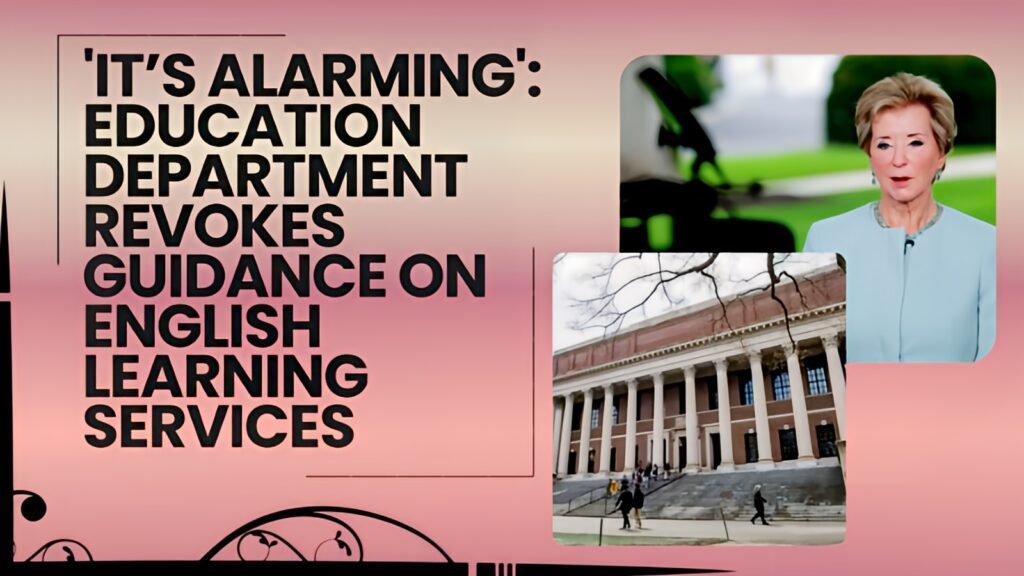The U.S. Education Department has formally rescinded a 2015 “Dear Colleague” letter that for years served as the federal government’s central guidance to school districts on how to serve the nation’s approximately 5 million English learners. Originally issued to ensure compliance with Title VI of the 1964 Civil Rights Act, the letter required schools to provide adequate resources and equitable educational opportunities for students who were not proficient in English. In its announcement, the department argued that the guidance had become “overly prescriptive,” micromanaging state and local efforts, and emphasized that states are best positioned to determine how to meet the needs of their English learner populations while still following federal civil rights laws.
The decision has drawn sharp criticism from education advocates and former officials who view the guidance as a cornerstone of accountability and oversight. Roxanne Garza of the Education Trust warned that immigrant students—many already anxious about federal immigration policies—could feel even less secure in their school communities. Montserrat Garibay, former director of the Office of English Language Acquisition under the Biden administration, described the letter as “the Bible” for English learner educators, stressing that nearly three-quarters of students in English language programs are U.S. citizens whose long-term success benefits the nation as a whole. She argued that withdrawing the letter sends the wrong message about the country’s commitment to these students, especially in light of an executive order designating English as the official language.
On the ground, some school districts have pledged continuity despite the federal change. The Los Angeles Unified School District, the second-largest in the nation, said its programs for English learners would remain intact, affirming its mission to meet all students where they are and provide the tools necessary for academic success. Still, immigrant-rights organizations and classroom advocates, including Viridiana Carrizales of ImmSchools, cautioned that the rollback marks another retreat from protections for immigrant children and could leave teachers scrambling to fill the gap without clear federal direction. Anne Kelsey of the Young Center for Immigrant Children’s Rights added that language access is a fundamental right, essential not only for academic achievement but also for parent engagement and stronger, more inclusive communities.
The move fits squarely within President Donald Trump’s broader K-12 agenda, which prioritizes shifting education responsibilities from the federal government to states and local authorities. Education Secretary Linda McMahon underscored that effort by launching a 50-state “Returning Education to the States” tour, signaling the administration’s intent to reduce federal involvement in classrooms nationwide. While the Education Department insists that rescinding the 2015 letter does not remove resources or directly alter state curricula, critics say it diminishes accountability and weakens a critical safety net for one of the most vulnerable student populations in the United States.






